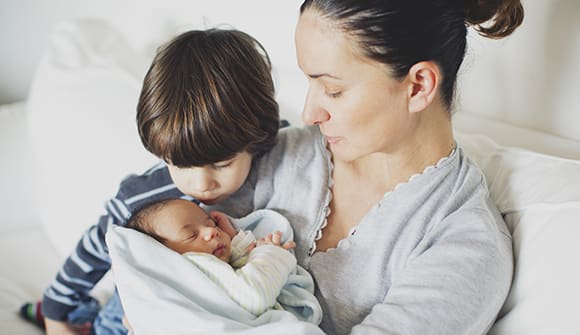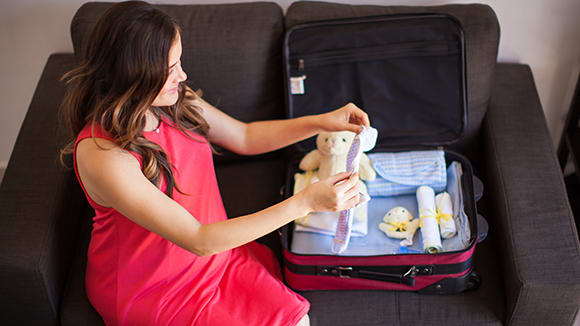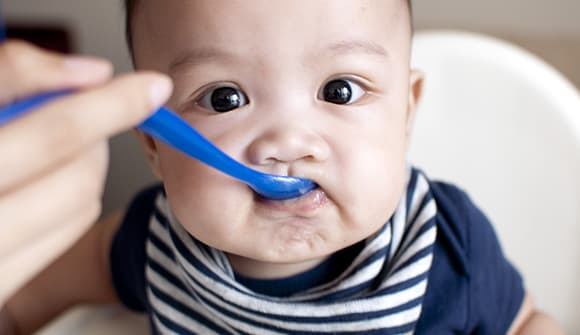Baby (and mom) on the brain
4 unexpected postpartum conditions to prepare for.
Article Author: Beverly Wong-Ken
Article Date:

Any new mother will tell you that, for the previous nine months, her mind was filled with anything and everything related to her pregnancy. With so much focus on the time leading up to baby's birth, it can be hard to acknowledge how your body will react afterward.
No matter what your delivery looks like, your body is going to need time to heal and during recovery, you may experience a few common, yet often unexpected, conditions.
Felicia Fox, MD, an obstetrician and gynecologist (OB/GYN) with FABEN Obstetrics and Gynecology who delivers at Baptist Medical Center Jacksonville, described four of the most common postpartum conditions she sees, and shared what to expect from your body to help you prepare and recover.
1. Hot flashes
According to Dr. Fox, "Hot flashes are commonly seen as a result of lower estrogen levels from breastfeeding." During pregnancy, your body releases the hormones progesterone and estrogen in large amounts, which suppress milk production. After delivery, these hormone levels drastically drop and the body begins producing milk.
As hormone and fluid levels eventually regulate, hot flashes will disappear. Until then, Dr. Fox recommended trying your best to stay cool, drink plenty of water and avoid triggering foods or beverages.
2. Mood swings
"Being a new mom can be the most exciting and the most terrifying event a woman will ever experience, and all at the same time. It is normal to see extreme highs and definite lows," Dr. Fox explained. "The exhaustion of being postpartum with little sleep can intensify these symptoms. Adequate rest, good nutrition and taking advantage of help are all important ways to deal with the challenges a new baby may bring."
3. Muscle weakness
"The pelvic floor and many other muscle groups may not have been exercised during pregnancy as they were previously, which can cause the muscles to weaken considerably," said Dr. Fox.
During childbirth, these muscles are strained. Performing pelvic floor exercises like Kegels during and after pregnancy can help diminish the stress that pregnancy and delivery place on the body.
4. Hair loss
Many women find that during pregnancy, their hair is noticeably healthy and strong. However, after childbirth, changing hormone levels can cause hair to thin and shed.
"Hair loss after giving birth is perfectly normal," said Dr. Fox. "At times it can be significant, but with reassurance and sometimes additional evaluation, the underlying process can be sorted out and treated."
With time, your hair should return to its usual growth patterns. Eating a healthy and balanced diet may help improve hair health and growth after the shedding phase has ended.
All in all...
Postpartum recovery can be difficult, but these conditions are normal and won't last forever.
During and after pregnancy, much of your focus will be on the baby, but remember that caring for yourself is equally important.
"Your body has just done something so amazing! Be patient with yourself and the process," Dr. Fox said. "You didn't create a baby overnight and the changes you are experiencing take time to resolve. Enjoy this precious time with your child and the rest will fall back into place in due time."
While a bit of soreness is expected after delivery, it's important to listen to your body and pay attention to any serious pain. Be sure to reach out to your OB/GYN with any questions or concerns.
*Need help finding an OB/GYN? We have a friendly team that can match you with the right doctor for you at 904.202.4HER.



